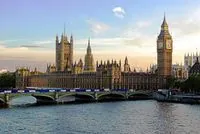UK's NHS Crisis: Lord Darzi's Report Reveals Systemic Failures
Lord Darzi's report on the NHS exposes critical issues, including 14,000 annual avoidable deaths. Despite increased funding, the UK healthcare system lags behind other developed nations in key health outcomes.

The National Health Service (NHS), once hailed as the pride of the United Kingdom, is facing unprecedented challenges according to a recent report by Lord Darzi. The findings reveal a healthcare system struggling to meet the needs of its patients, particularly the most vulnerable.
The report highlights that the NHS is responsible for 14,000 avoidable deaths annually due to extended waits in Accident and Emergency departments alone. This statistic is particularly alarming given that the NHS deals with over 1 million patients every 36 hours, emphasizing the scale of the problem.
Comparisons with other developed nations paint a concerning picture. The UK ranks in the bottom three out of 18 countries for survival rates in common cancers, strokes, and heart attacks. This poor performance persists despite the UK seeing the largest increase in health spending as a proportion of GDP among comparable countries between 2020 and 2021.

The NHS's challenges are multifaceted. An aging population and the rising costs of medical technology contribute to the strain on the system. Additionally, the NHS faces a significant workforce shortage, with many vacancies remaining unfilled. These factors combine to create long waiting times, particularly for non-emergency procedures.
Personal accounts from patients and healthcare professionals illustrate the human cost of these systemic issues. One elderly patient reportedly waited 12 hours for an ambulance after suffering a broken femur. Another case involved a teenager who experienced delays in diagnosis, potentially impacting her long-term health.
"I've worked in the NHS for 35 years (22 as a consultant) and it is a system that just doesn't work. But, now, it's just awful, Allison. AWFUL. European colleagues used to laugh and poke fun about the NHS and me being a British cancer specialist. 'Jeremy, you won't be getting this cancer drug for a few years... Ha ha!' Now, those foreign colleagues don't laugh any more. They simply DO NOT BELIEVE how bad UK healthcare is."
Despite these challenges, the NHS has shown resilience in certain areas. Its response to the COVID-19 pandemic, including a rapid vaccine rollout, has been praised. The organization has also been exploring digital health technologies to improve efficiency.
The debate surrounding the NHS's future is complex. While Lord Darzi maintains that the principles of a taxpayer-funded, free-at-point-of-use system should remain, there are growing calls for significant reforms. As the fifth largest employer in the world, with over 1.3 million staff, any changes to the NHS would have far-reaching implications.
As the UK grapples with these healthcare challenges, the path forward remains uncertain. What is clear, however, is that addressing the NHS's systemic issues will require innovative solutions and potentially difficult decisions to ensure the health and well-being of the British population.


































